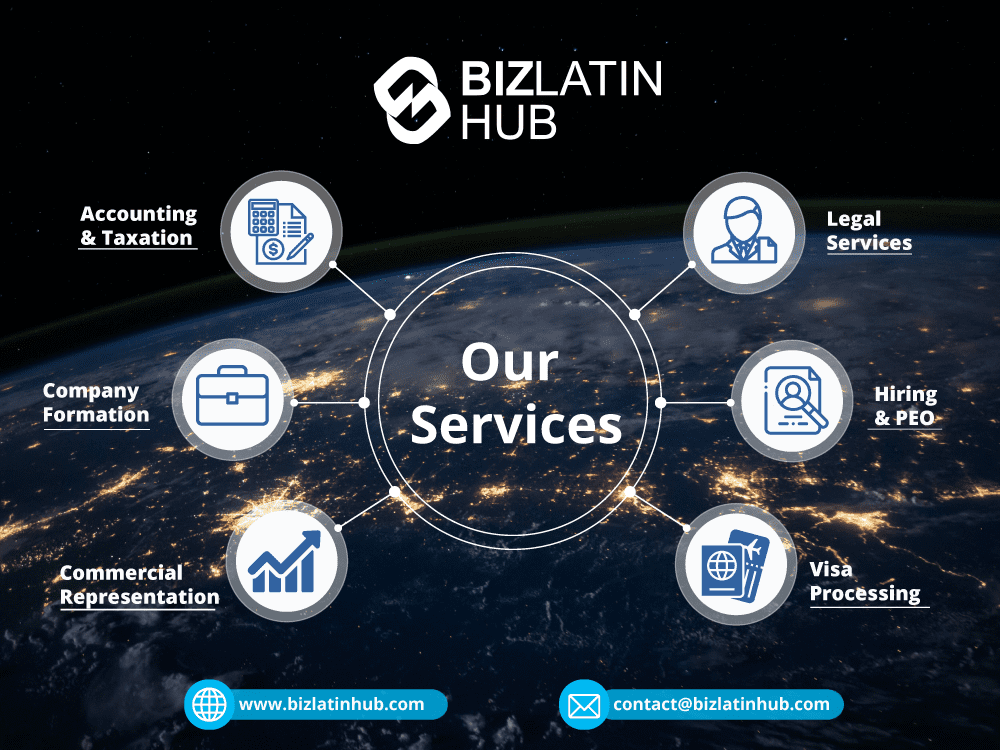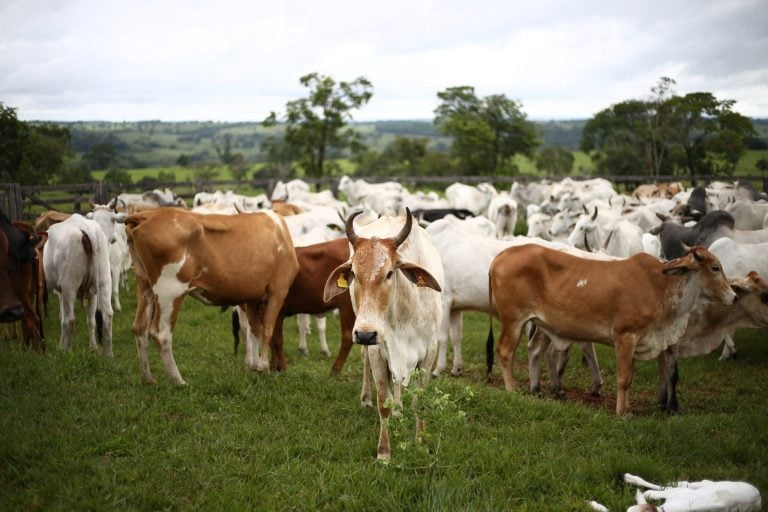Uruguay will become the first country in South America to export certified carbon neutral meat when a consignment destined for Europe leaves the port of Montevideo this month.
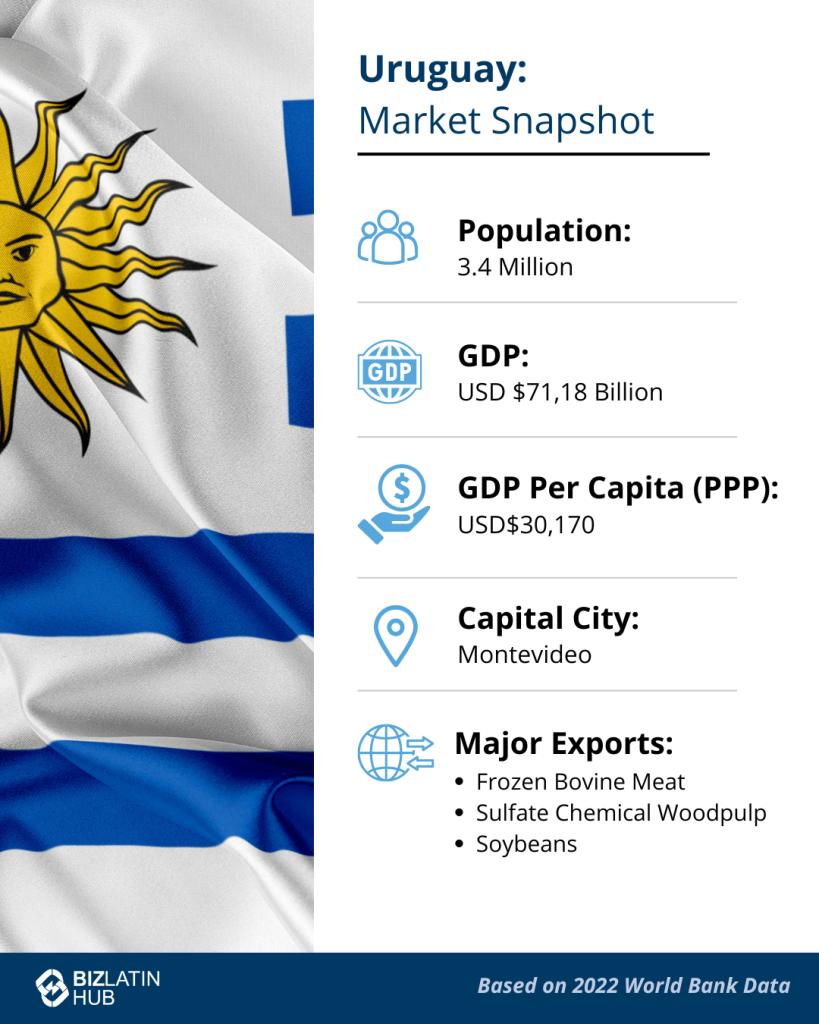
The shipment by Uruguayan carbon neutral meat manufacturer Mosaica has been certified by local certification body LSQA, and will leave for Switzerland in the middle of December.
The consignment represents an “historic milestone,” according to Agustín Russi, business development manager at LSQA, which is also active in other carbon neutral meat producing nations in the region, including Argentina, Brazil, Chile, Mexico, and Paraguay.
“The carbon footprint process is the closest thing there is to an accounting process, where instead of counting money, tons of carbon are counted,” Russi was quoted as saying by agricultural news outlet Blasina y Asociados.
Uruguay’s agriculture sector is a key pillar of the economy, with cattle outnumbering people in the country by approximately four to one and the sector contributing more than 7% of gross domestic product.
However, according to LSQA the agriculture sector is also responsible for producing an estimated 75% of the country’s greenhouse gas emissions, with Uruguay’s livestock industry one of the biggest polluters. Latin America is home to six of the world’s top 20 beef producers, with the production and promotion of more environmentally friendly meat promising to be critical to the industry having a more sustainable future.
Biz Latin Hub can help you with market entry and to set up a business in Uruguay. We know the country inside out, which means that we can navigate all the local bureaucracy for you and allow you to concentrate on what you know best – managing and growing your business. Better yet, we can help you expand elsewhere in the region, via our 18 local offices across Latin America and the Caribbean.
How is Uruguay’s carbon neutral meat certified?
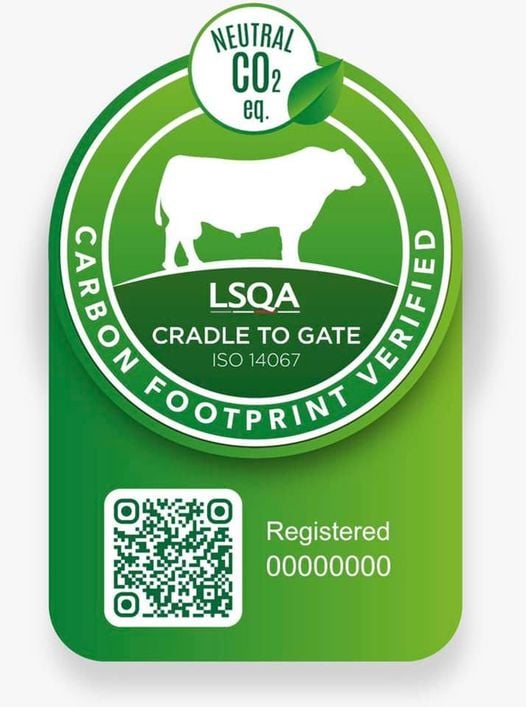
Carbon neutral meat is certified in Uruguay via a comprehensive “Cradle to Gate” study of the production process carried out by LSQA, which monitors carbon emissions related to rearing livestock from the moment they are born, through the fattening up process, and up to the animals’ arrival at the slaughterhouse.
That involves standards set by the International Organization for Standardization (ISO), rules on product categorization, and guidelines on greenhouse gases established by the Intergovernmental Panel on Climate Change (IPCC).
It also entails a “fingerprint inventory” that cattle farmers must self-produce to demonstrate their emissions, as well as efforts taken to mitigate them, all of which is verified by LSQA. Mosaica reportedly began an “arduous process” of data collection and management to monitor its carbon footprint at the beginning of 2021.
According to LSQA, the company achieved its status as a producer of carbon neutral meat partly thanks to using natural pastures, as well as through engagement in native forest conservation.
Carbon neutral meat offers promise to major beef producers
While Uruguay has established itself as the pioneer of carbon neutral meat production in South America, this new development promises to have major repercussions for the region, where the top six producers are responsible for more than 28% of global beef exports.
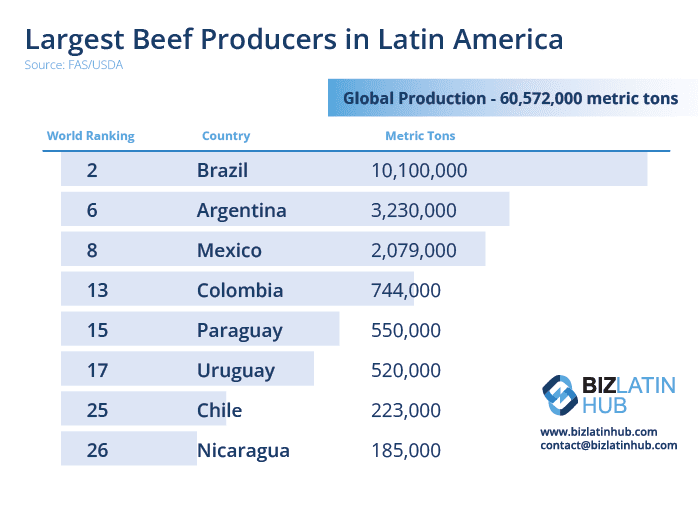
The Southern Cone sub-region — which includes Argentina, Brazil, Chile, Paraguay, and Uruguay — is a particular hotbed for beef production, with four of those nations among the world’s 20 top producers, while Chile sits in 25th.
Those four are also founding members of the Southern Common Market (Mercosur), a 30-year-old economic association that in 2019 announced an agreement in principle for a free trade agreement with the European Union — the South American bloc’s primary trading partner, as well as being the third-largest producer of beef globally.
With the ball now rolling on carbon neutral meat and exports from Mercosur, and with all of its members apart from Paraguay having signed the Global Methane Pledge, it is likely only a matter of time before meat producers in other Mercosur countries seek to have themselves certified.
Meanwhile, elsewhere in the region, addressing pollution related to raising livestock is also fitting into broader plans to reduce emissions, with sustainable cattle ranching forming a key part of Colombia’s plans to reach carbon neutrality by 2050.
Biz Latin Hub can assist you with carbon neutral meat
At Biz Latin Hub, our team of professional support experts is on hand to provide the assistance you need when doing business in Uruguay.
Whether you are planning to engage in agricultural pursuits such as the emerging carbon neutral meat trade, or any other type of business, we have the right people in place to make things run as smoothly as possible.
Our portfolio of services includes accounting & taxation, company formation, due diligence, hiring & PEO, and corporate legal services, among others, and we provide tailored packages of back-office services to suit every individual need.
We have teams in place in 16 markets around Latin America & the Caribbean, meaning we are ideally placed to support multi-jurisdiction market entries and ongoing operations.
Contact us today to find out more about how we can support you.
Or read about our team and expert authors.
